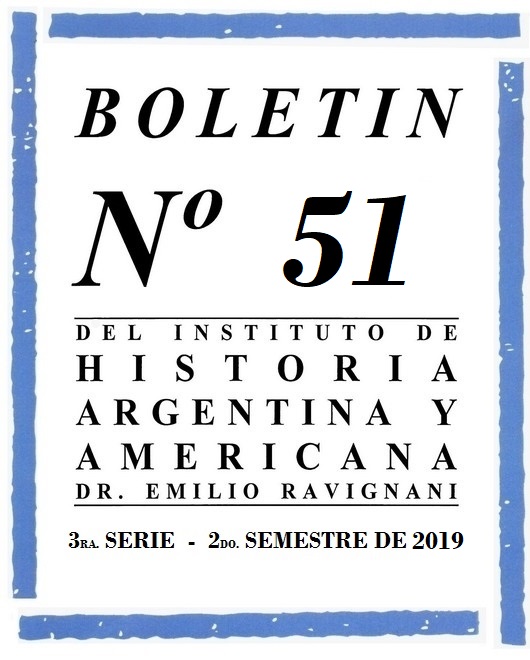From enigma to paradox. Reassembling the politics of the first Peronists (1945-1955)
Abstract
This essay proposes to visualize a network of contributions and debates of the last years on the politics of the first Peronists, between 1945 and 1955. It covers part of the academic production, incorporating writings on 1) the experiences of the "interior" of the country; 2) the party and organizational life; and 3) union activism. At first, the text reflects on the place that the Peronists had as actors of politics in the "classic" studies of the area. In a second moment, it approaches the contributions that were made from the "political history", occupied in relativizing the emphasis on the structural determinations that signaled the formation of Peronism, attributing greater autonomy to the political. In a third moment, it recovers the place that politics has had in some of the latest developments in trade union and associative history of the period. The last part of the essay displays the central argument according to which the political dimension of peronism has stopped being imagined as an "enigma" to be conceived as a paradoxical object, marked by contradiction. This conception, it is stated, is the effect of theoretical assumptions that the situated descriptions would be requiring to review.Downloads
The copyright is transferred to the Boletín, but the authors may retrieve them and reproduce their work in other media or formats by means of a written request to the Editorial Committee. In such cases, the Boletín will be cited as the first publication of the work.
The works are licensed under a Creative Commons Attribution-NonCommercial 4.0 International License, which allows others to share the work with an acknowledgment of their authorship and initial publication in this journal.
Also, by written request to the Editorial Committee of the Boletín, the authors may separately establish additional agreements for the non-exclusive distribution of the version of the work published in this journal (for example, placing it in an institutional repository or publishing it in a book), with an acknowledgement of its initial publication here. No commercial uses are allowed.



















